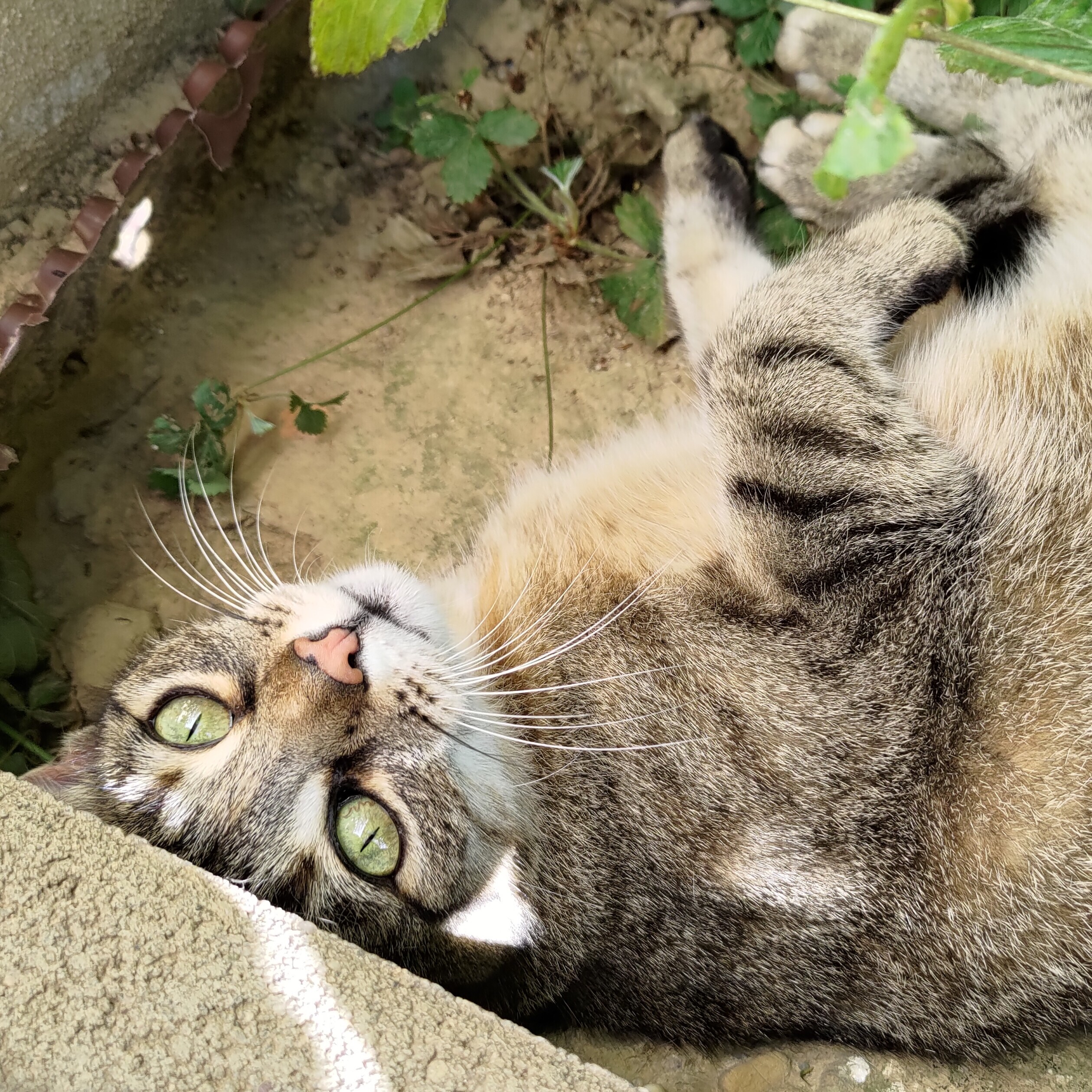- Water. No drinks other than water or black coffee/ tea.
- Understanding nutritional value better and counting calories (for a while). Intuitive eating has been sven better for me after that.
- OMAD. One meal a day. Suited my hunger pattern for a long time and allowed me to feel full after a meal which I like while feeling light most of the day which I also like.
- Home cooked meals 99% of the time. Literally. Maybe eat out once a month most months.
- Enjoying feeling healthy, so liking eating the things I ate and working out etc.
Things I didnt need but do recommend:
- Improved fiber intake.
- Cutting all caloric drinks.
- Know how much fat youre adding to your food, that tsp you just added are actually 2 tbsps.
- Choose better carbs. Thats mostly about fiber content again. So whole wheat instead of white.
- Dont mean to sound like that guy but good for gut foods. Yogurt, pickles and other fermented products.
- The mental side. Know that a bad meal, day, week doesnt ruin anything. You don’t need to be perfect, just improve in the long term.
I could go on forever but I’ll stop here.
Understanding nutritional value better and counting calories (for a while).
Amazing comment, but I just want to throw some support behind this concept in particular.
The goal of calorie counting doesn’t necessarily need to be to commit yourself to it for life. It’s okay if you do! But many people will “catch” issues they had within a few months, and generally be able to navigate things successfully from there just by eyeballing it in.
Another way I like to think of it is meal-by-meal. Instead of logging the full day, it’s easier to just quickly check the labels and make sure that meal is within your normal range
I see a lot of exercise reccomended ITT, but just remember that it takes an hour to “burn” 300 calories walking, but under a minute to eat a donut. Dieting is your battle. Also, doing a little exercise (5 min walk) everyday that you can keep yourself doing consistently is WAYY more important than the 2 hour gym sesh you hit twice then get demotivated and never do again
(This is coming from someone with no experience losing weight, so take it with a grain of salt)
I agree with you overall. One benefit of exercise, is it increases your muscle mass. Which generally increases your overall metabolic rate. Which means throughout the day to maintain that muscle mass you are burning more calories at rest then if you hadn’t developed that muscle mass. So there is benefit to generating muscles for the sake of generating muscles
All people who mentionned sport also mentionned the importance of diet. It’s sport that is always downplayed when it comes to losing weight.
I go road cycling a lot. That burns more than 600 calories an hour. Just one 3 hour ride per week offsets almost as much calories as eating in one day does.
No magic tricks or diet fads.
Eat less, move more.
Eat more vegetables and salad, cut down bread and meat.
Stop drinking sodas and juices with extra sugar in them and learn to quench your thirst with water.
Limit eating candy or cookies to one day per a week, if you can’t let them go entirely.
Got a divorce and lost my job. Spent six months eating 1500 calories a day, 600 of which were liquor, and walking five to seven miles a day. Hours of walking by the Sound in the rain every day. Felt like the only thing I could control was what I ate and how much I walked. Lost thirty pounds. I got a few compliments on how much thinner I looked. Didn’t tell anyone that every pound was burned with hate.
I’m doing better now.
I’m glad you’re better now, I wish you all the best!
I tried to do a bunch of small things. No single thing was the key.
- started drinking my coffee black
- drink more water, and drink water instead of other things
- I take the stairs instead of elevator/escalator whenever possible
- I try not to eat seconds at dinner
- “Real” exercise (like running, rowing, etc.) every other day, but if I can squeeze in extra ones, (e.g., 2 days in a row), I go for it
- If I’m not up for real exercise, I’ll go for a walk
- intermittent fasting in the mornings, so often no breakfast, but not necessarily every day
- No snacking after 19:00
- At restaurants, if 2 options look good, go for the one with fewer calories
There are probably more, but those are the kinds of habits we’re talking about.
Also important: if you don’t stick to all habits, don’t beat yourself up about it.
With the above, I was able to get from a high of 235 lbs down to around 180. I’m a bit more than that right now, but pretty close still.
these sound like very good habits
Eliminating certain kinds of food entirely
Some foods tended to be things I quite simply ate too much of, and eliminating them entirely was the simpler option. Snacks are obvious in this category, but less obvious for me was bread and sandwiches.
Walking, a whole lot of it
Running can often be the exercise that comes to mind when wanting to lose weight, which is natural on account of its cultural prevalence and high energy requirement. The problem is that you can’t really do a whole lot of it without getting tired, and if you’re overweight it probably hurts like hell to do it.
Walking, on the other hand, can be done essentially in unlimited quantities. I took every opportunity to go for long walks at a brisk pace, listening primarily to podcasts but also audiobooks to keep me entertained. It was also a good opportunity to catch up with family by giving them a call.
Caloric restriction
At the end of the day, no matter what kinds of food I ate, my appetite still pushed me to put more energy into my body than I was able to spend. As such, I had to implement some form of caloric restriction to keep the number going down.
These things worked for me but may not be appropriate for you. Losing weight is very hard, some trial and error is probably a good idea. Good luck!
Use a calorie counting app like lose it. Log everything you eat. It’s very tedious at first but pretty soon you get really good at judging how many calories are in things. Don’t stop logging! Track your weight. When you hit plateaus zoom out on the time scale and look at your trend line going down and feel good about yourself.
The trick is being honest with yourself. There are no free calories. Those 2-3 little cookies you had at work? They count. The extra scoop of rice? That counts. Most people have no concept of how many excess calories they’re really taking in.
Over COVID lockdown my wife and I both gained 10-15 pounds and I was already a good 20 pounds over where I wanted to be. We both started this and never stopped. I lost 40 pounds in about 9 months (230 to 185) , she lost 20, 155 to 134, and we’ve both kept it off for the last three years. We log all our meals and we exercise. Exercise becomes rewarding because burning extra means you can cheat! Did you bike twenty miles today? HAVE YOU A FUCKIN DONUT THEN!
pretty soon you get really good at judging how many calories are in things.
This was the key for me. Understanding the cost of the food I enjoy let me cut back on rice and replace it with ice cream, for example.
Also when I’m logging food, it adds a bit of friction, especially for new foods, so I eat less just because of that. Usually that’s when I realise that I’m not eating because of hunger.
Crippling Depression
Funny, that just makes me eat even more. How can I learn your power?
Get more depressed and add intense anxiety to the mix.
If my depression is bad, but not suicidal bad, then I overeat. If it’s suicidal bad, I stop eating.
I started slow jogging every other day, using an app called Just Run that has you alternate walking/running until you’re built up to running a full 3k. It goes for 9 weeks and I just completed week 6. There’s a 10k version I’ll be moving on to after.
On the days I don’t run, I use Chloe Ting weight-training videos on YouTube to target areas I need strength support in, like my lower back and shoulders. I also use her cool down routine every day, it’s the best stretching video I’ve found.
I’ve also been fasting every Monday. Just nothing but coffee (which I do put some sweetener and milk in in the morning) and water.
I only weigh myself once my period has come and gone, since I tend to fluctuate about 10 lbs during. I weighed myself about 3 weeks ago and I’ve lost 13 lbs. I’ve just now started seeing and feeling a change.
The fasting is the part that actually affects your weight.
Running for half an hour burns about 400 calories. 1 hour of running, 800. 3 runs a week can burn a day’s worth of calories. Don’t understate the impact exercise has.
While exercise will have some impact the vast majority of weight is controlled by what you eat not what you do. Also calories are not burnt in a simple one to one equation. Different types of calories are processed definitely in the body. Sugar turns to fat, but the same amount of calories in bacon, or carrots, or bread, are all different, and your body will use them differently. The less processed a food is, the harder it is for your body to extract those calories, so measuring calories from what it says on yh packet is not the best guide.
Sorry, rambling.
Tl;Dr - Exercise for fitness, eat for fitness.
Definitely do both if you need to, but don’t under estimate exercise. I went from 10.5st to 9.5st just doing couch to 5km and then continuing to run 5km 3 times a week, no other dietary changes.
amphetamines
I’m struggling with this right now. I started going to the gym 6 times a week almost a year ago knowing it wouldn’t be enough by itself but trying to only make one big lifestyle change at a time. Now my gym habit is well and truly locked in I really need to improve my diet as my next big change. My weight has been basically exactly the same since I started. Lots more muscle mass now but still…
Good luck to everyone trying to make improvements to their health!
Oh I actually did lose like 20kg a few years ago by doing keto but it wasn’t sustainable to me so I put it all back on. I guess the lesson for me there is to keep trying until you find a sustainable change you can stick to as a lifestyle, not just temporarily.
Well muscles are very dense. If you go for body shape and fitness, don’t go for raw weight at the same time basically.
I’m also struggling with this a lot. I’m around 1.7 meters, and my weight is around 89 kilos. I know that BMI isn’t the most accurate measurement, but a rough estimate of my health. I’m in the obese territory at a BMI of 31. Depression makes me want to binge-eat. I am also physically inactive, because I’m trying to learn software dev stuff, but I have poor attention span. My back is already aching at 23.
Premake healthy snacks like overnight oats and fruit salads. Throw away all cookies, chips, soda, juices, and other high calorie and low nutrition foods and drinks. Eat more fiber and whole grains. This is hard for people but going vegetarian doubles weight loss if you replace it with direct substitutes like tofu and mushrooms. Round it all by adding beans or chick peas to your meals.
Having high fiber foods means you don’t need to change your eating habits. The issue with advice in this thread is it ignores the struggle with eating habits. Not everyone can go to snacking addiction to “I just eat a banana before 5pm and nothing more”, it’s completely unrealistic and makes you feel worse about yourself and causes more binge snacking as a result.
Finally, look at small goals. Try to switch your foods to the first 2 things I mentioned. Switch to only water. Always drink a ton of water right before eating anything and your stomach will feel full. You will see weight loss of 5 kgs quickly if you go all in. Then target your body’s feeling, the aches will go away slowly as you put better things into it. Then target further small kg losses, 5 kg at a time.
My weight loss started in a thread exactly like this. I read about someone using My Fitness Pal to track their food intake and consuming less than they were burning. I tried the same thing and within days I was losing weight and feeling better.
I lost 80 pounds over the following year, took up running using the Couch 2 5K program and have been maintaining that since 2018.
Finished my first triathlon last summer.
ADHD meds 🫤
Ha - going on to ADHD meds led to me gaining weight.
Same, I just eat more at night when they wear off.
There are many methods that are ultimately a combination of psychological tricks, and finding food and meal times that you work well with.
The one thing they all have in common is calories in being less than calories out.
One of the easiest and most effective ways to get started is simply establishing a baseline. Don’t try to change anything, just count everything. And yes that means everything. After that, look for things you know don’t make you feel good. Maybe limit or drop soda, cut a snack in half, limit dessert, reduce alcohol, etc.
Radical diet changes aren’t required, just consistent.
When you start to run into problems with something that feels like self control (snacking, meal size, alcohol, sugar, etc), then look into ways to work through that. Often it’s just learning new habits (never eat from the bag, seconds are ok but start small and wait, etc). Those habits really depend on the individual and where you’re currently at though.
Some people do great with keto, some with fasting 20 hours a day, some with only snacks instead of meals, or only meals and zero snacks. Just trying those at random without understanding where you’re currently at first can lead to feeling failure and giving up unless you happen to get lucky with what you try first.
And, always be kind to yourself.
The first thing you said here is pretty spot on for me. Losing weight is largely a psychological battle, so giving people a simple task list doesn’t always work.
What we need to understand is that “losing weight” goes against our biological programming. We have evolved over millenia to crave carbohydrates (sugars) and fats because they are ready sources of energy, and to only undertake strenuous physical activity if absolutely necessary. In developed nations today neither of these leads to very healthy living, so we need to actively fight against our reptile brains to stay healthy.
As you said, consistency is key. You don’t get healthy by working out 9 hours one day only and eating salad for a week, you get healthy by making small, manageable healthy choices every day.
Try doing a little more exercise this week than you did last week. You can increase time, intensity, or frequency of whatever your chosen activity is. Try deprogramming your need for ultra-sweet foods by limiting your sugar intake and always try to consume fiber with your sugars (raw fruits are great for this.)
Little by little you will see beneficial changes
Better eating habits. More physical activity. There are no magic tricks.
Keto definitely felt like a magic trick to me.
It’s not, it’s a tool to help you have better eating habits, which is the first thing mentioned in the comment you replied to.










